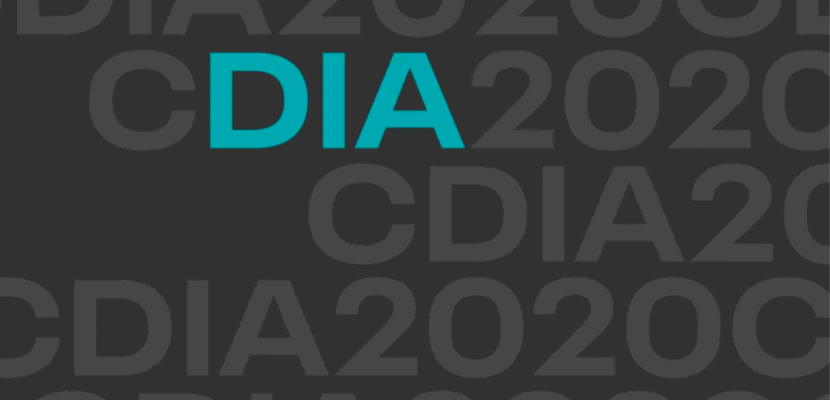What a fantastic 24-hours it has been here at Cloudera. During the first-ever virtual broadcast of our annual Data Impact Awards (DIA) ceremony, we had the great pleasure of announcing this year’s finalists and winners. Streamed to hundreds of people around the globe, we were able to come together to celebrate some incredible successes.
In a year marked by unusual events, and disruption to our “normal” lives, it was a pleasure to recognize our customers’ most impressive achievements. This year the DIA recognized the preeminent organizations using the Cloudera platform.
Each of our winners demonstrated the impact their projects have within their organization, on their business’ bottom line, and on the world.
We received a phenomenal number of quality nominations this year from leaders of industry and creators of some of the world’s most innovative solutions. In fact, each of the 29 finalists represented organizations running cutting-edge use cases that showcase a winning enterprise data cloud strategy. We also celebrated the first-ever winner of the Data Impact Achievement Award — a new award category that recognizes one customer who has consistently achieved transformation across their business, pursuing a diverse set of use cases and creating a culture of data-driven innovation.
Our winners were selected by a group of 37 industry analysts, influencers, and members of the media. We are delighted to officially publish this year’s Data Impact Award winners.

Data Impact Achievement Award
Winner: United Overseas Bank
United Overseas Bank (UOB), a Singaporean multinational banking organization, is recognized as one of the most excellent and professionally managed financial institutions in Asia. UOB understands that the future is data-driven. The Bank has been continually preparing its entire workforce and infrastructure, spread across 500 offices, for the digital future. The technological linchpin of its digital transformation has been its Enterprise Data Architecture & Governance platform. The platform is loaded with over 30,000 files per day, from 95 systems across the bank. It hosts over 150 big data analytics sandboxes across the region with over 200 users utilizing the sandbox for data discovery. With this functionality, business units can now leverage big data analytics to develop better and faster insights to help achieve better revenues, higher productivity, and decrease risk.
Data Champions
Winner: OVO
OVO is the leading digital payment, rewards, and financial services platform in Indonesia. OVO is available on 115M devices in Indonesia and these devices collectively generate tens of millions of data points every day. As the volume of products within OVO’s ecosystem increases, the ability to ensure marketing effectiveness is of the utmost importance, especially in order to minimize any unnecessary marketing spend. With ultra-personalized marketing at the heart of their strategy, OVO built its first contextual offer engine, OVO UnCover. OVO UnCover enables access to real-time customer data using advanced, intelligent data analytics and machine learning to personalize the customer product interaction experience. In its first six months of operation, OVO UnCover has proven to be 7.9 times more effective than traditional mass marketing. As a direct result of this project, OVO achieved a 15% increase in revenue.
Data for Enterprise AI
Winner: Experian BIS
Experian is a global leader in consumer and business credit reporting and marketing services, unlocking the power of data to create opportunities for consumers, businesses and society. Experian sifts through hundreds of millions of records daily to serve both consumers and businesses with vital credit score, report, and credit comparisons. To ensure maximum momentum and flawless service the Experian BIS Data Enrichment team decided to use the power of big data by utilizing Cloudera’s Data Science Workbench. Using Data Science Workbench, Experian BIS launched over 6 different data-maintenance apps, and in doing so tackled previously unsolvable problems, such as identifying non-commercial data in the commercial data repository, with machine learning and automation. The first app launched by the team saw productivity gains up to 3,000% with average unit cost reductions up to 99% when compared to the previous manual process.
Connect the Data Lifecycle
Winner: Globe Telecom
Globe Telecom, Inc. is a leading full-service telecommunications company in the Philippines. It serves the needs of consumers and businesses across an entire suite of products and services including mobile, fixed, broadband, data connectivity, Internet, and managed services. To optimize investments, effectively bundle product offerings, and deliver contextual campaigns, Globe Telecom created a new analytical environment. This environment uses Kafka to ingest massive volumes of real-time, granular network signal information, and combines that with batch loads from billing systems, payments, and more. Using the Cloudera Data Platform to interpret analytics across its departments, Globe Telecom tripled their Airtime Loans revenue in the first year, followed by another approximately 120% in the first half of 2020. The team also positively impacted the lives of their customers, helping them keep in touch with their loved ones, by providing access to loans during the pandemic.
Enterprise Data Cloud
Winner: West Midlands Police
West Midlands Police is the second-largest police force in the United Kingdom, covering an area of 348 square miles and serving a population of almost 2.8 million. West Midlands Police are recognized for their incredibly innovative work with Accenture and Cloudera over the last 5-years. They have delivered several large-scale transformation projects to enhance capabilities across the force, and to improve the service the force provides for its citizens. The Data-Driven Insights project they undertook, is a cutting edge initiative aimed at radically improving the police force’s data and analytics capability. The predictive insights generated by this project continue to lead to positive community interventions and informed decision making.
Data Security & Governance
Winner: Merck KGaA, Darmstadt, Germany
Merck KGaA, Darmstadt, Germany, is a leading science and technology company, operating across healthcare, life science, and performance materials business areas. The Advanced Analytics team supporting the businesses of Merck KGaA, Darmstadt, Germany was able to establish a data governance framework within its enterprise data lake. This enabled Merck KGaA to control and maintain secure data access, and greatly increase business agility for multiple users. The policy-based framework also provides an efficient way to provide data access to end-users. With support from Cloudera’s solution, Merck KGaA is further able to decrease operational costs and ensure data accuracy through good governance on disparate data sources. It is also able to provide unparalleled accessibility of data through running an efficient access management program.
Industry Transformation
Winner: Telkomsel
Telkomsel is a subsidiary of PT. Telekomunikasi Indonesia Tbk (65%) and Singapore Telecom Mobile Pte Ltd (35%), serving more than 158 million subscribers and supporting ten billion customer activities every day. The company tackled digital transformation head-on by building a single digital platform to drive data-driven decision making, fundamentally improve customer experience, and identify new business models. This transformation enabled Telkomsel to increase campaign take-up rate to increase revenue up to 400% and create 29% growth in its digital services revenues. Telkomsel has also been able to increase storage efficiency resulting in an 80% cost reduction compared to previous technology stacks.
Data for Good
Winner: Rush University Medical Center
Rush University Medical Center is the flagship location for the Rush University System for Health, an academic health system with a mission to improve the health of the individuals and diverse communities in Illinois. In an incredibly swift response to the resource, staffing and capacity pressures they anticipated on the medical center because of the COVID crisis, Rush University Medical Center built a data pipeline to automate the ingestion of COVID data in less than 2 weeks. The pipeline provides its clinicians fast access to real-time patient data and prediction models. As a result, Rush has been able to dramatically reduce data processing time from days down to a mere 15-minutes — allowing its clinicians to accurately predict case volumes, avoid shortage of critical resources, and help health care workers to make fast and accurate diagnoses. Rush is literally saving lives as we speak.
We also want to extend a heartfelt thank you to each and every member of our judging panel. We owe you a great debt of gratitude for contributing your expertise to reviewing and scoring each of this year’s awards submissions.
And last, but definitely not least, a special thank you also goes out to Bob Gourley, Chris Marshall, Anupam Singh, Agatha Poon, Wim Stoop, Nick McQuire, Cornelia Lévy-Bencheton, Mike Barlow, and our Cloudera host Justin Mounts for participating in our virtual celebration.



